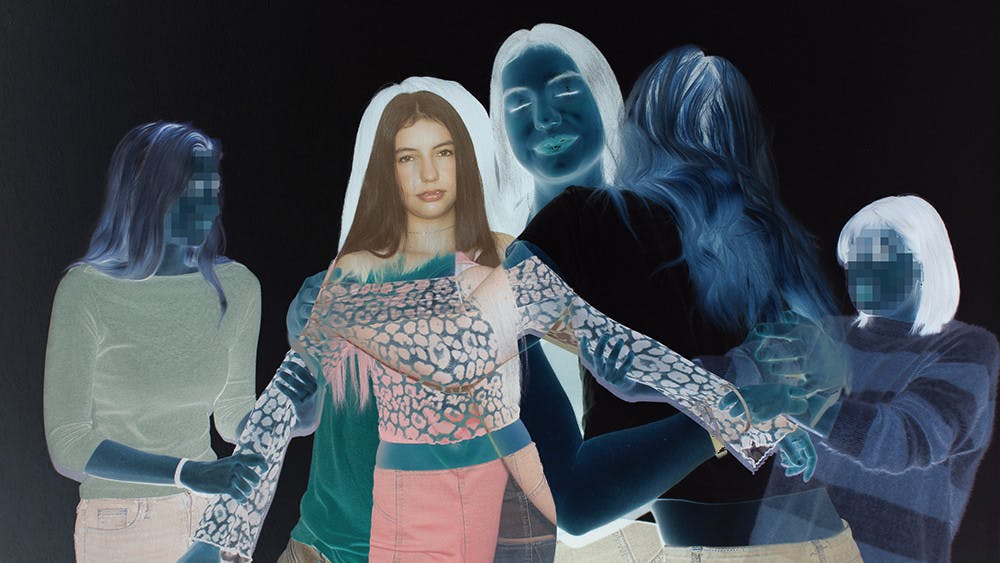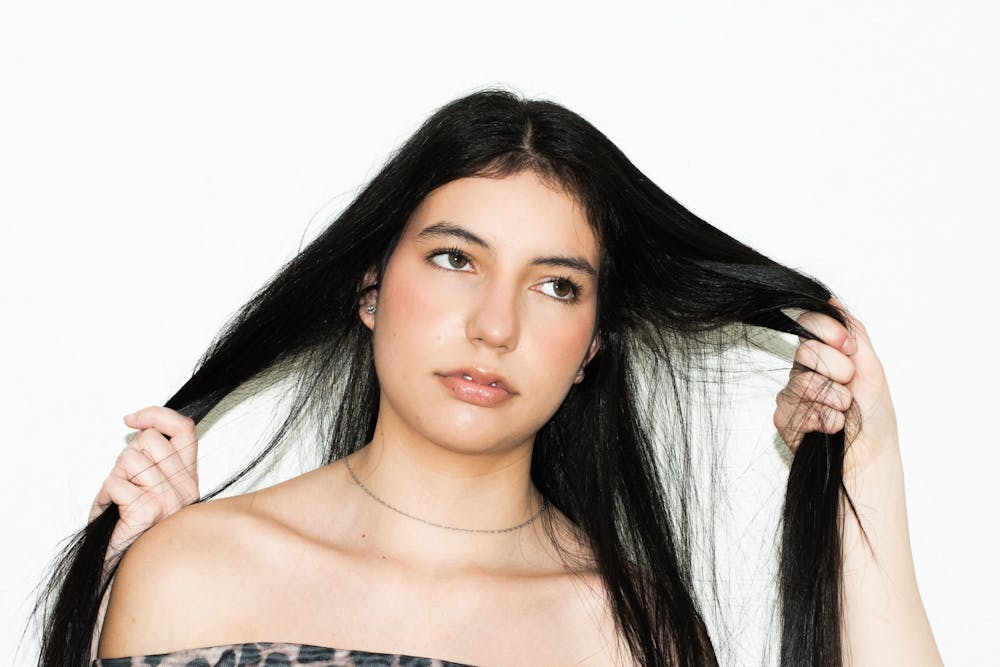Listen to the article:
A typical morning in my household growing up looked similar to an opening night of a mainstage theater production. I would walk past the bathroom to the sound of my sister belting an original song from the shower while the older of my two brothers was just around the corner asking me to help him finish his math homework. In the living room, my youngest brother was begging me to watch him do cartwheels. As the eldest daughter, I was the stage manager tasked with making sure everyone was where they needed to be and had what they needed.
"Matthew, I can't watch you do cartwheels right now; Jon needs me to help him with his fractions. Give me five minutes."
"Jon, all you have to do when you divide fractions is remember: keep, change, flip. Make sense?"
"Ella! I still need to shower. Can you get to the finale so we can make it to school on time?"
"Everyone, we have to be at the bus stop in 20 minutes!"
Eldest daughters everywhere are pillars for their younger siblings to stand on whether they accept the responsibility or not. While my mother was most definitely present and involved in our daily lives, I still felt the pressure to show up in ways a mother would.
My role in my family makes up a large part of who I am today. I'm not mature for my age because I have an old soul; I had the responsibilities of someone twice my age. I'm not a straight-A student because I'm smart; I can't set a bad example for my siblings. I'm not organized because I like to be organized; people are always depending on me. At times, the weight on my shoulders was more than I could carry.
Seen and heard
Marriage and family therapist Kati Morton went viral on TikTok after she posted a video identifying eight signs someone might have "eldest daughter syndrome":
- You feel an intense feeling of responsibility.
- You’re an overachiever, type A and very driven.
- You worry a lot and probably have anxiety.
- You struggle with people-pleasing behaviors.
- You have a hard time placing and upholding boundaries.
- You resent your siblings and your family.
- You struggle with feelings of guilt.
- You have a difficult time in your adult relationships.
Morton clarifies that the video is not an official mental health diagnosis, but rather an explanation of the term.
Research around the connection between personality and sibling order is varied. Some studies show a positive correlation with birth order and I.Q. (older siblings have a slight advantage), but most research suggests that birth order has little to no effect on personality. However, the viral phenomenon has brought solace to eldest daughters who relate to each other through their shared experiences.
"Honestly, we do have a lot more anxiety, and we feel a lot of pressure like we need to be the best and take care of things for our family," said Elizabeth Agazaryan, a graduate student studying sports journalism.
"I am 100% a people pleaser, and I don't like it," said Laynie Ben, a sophomore studying aerospace engineering astronautics. "I also feel like I am the type of person to be prepared, but overly prepared. Like, I've thought about all of the scenarios and I have a little anxiety tied in with that. I think that comes from having a weird dynamic at home."
As a result of the eldest daughter trend, online spaces for eldest daughters have grown in popularity. Digital creator Sherri Lu founded the online "Eldest Daughter Club" on Instagram and TikTok, and podcaster Kendra Austin hosts "Eldest Daughter" where she talks about intergenerational trauma.
Often, eldest daughters spend their time caring for others, overextending themselves and failing to receive the same care in return. Eldest daughters everywhere are searching for spaces where the difficulties of their shared experiences are seen and heard.
Existing as a girl in the world
Gender roles play a big part in shaping the experiences of an eldest daughter. Traditional expectations of femininity consist of household responsibilities like cooking, cleaning and childcare, and these tasks are often placed on daughters. While these traditional expectations have become less common, the effects trickle down.
"My father saw that it was a mother's job to make babies and stay home," Ben said. "I wanted to make rockets, (but) I didn't really get a lot of support from my dad because it didn't align with his vision (of traditional gender roles and expectations). I try to separate (from) that so I don’t feel super connected to it, but I know it impacted me a lot."
Andrea Lee, a freshman studying nursing, has a younger brother. Growing up, she felt an added pressure to succeed and set an example.
"You are the older sibling, so you are expected to know what is right and what is wrong and you're just left with that pressure," Lee said. "Especially coming from an Asian household, grades were a big thing, so I felt like I always needed to have my grades up, and if I didn't, I felt like I would be disappointing my family."
Lee also talked about the ways in which gender expectations coincide with cultural expectations in Asian households.
"In Asia ... girls are told (how to be) so I feel like I have to live by that as well," Lee said. "For example, girls can't be masculine, and they have to be good at cooking and good at cleaning and taking on more of a feminine role."
Keyon Owusu-Asante, a senior studying criminal justice, grew up in Ghana and the U.K. She is an
older sister to her younger brother and sister. In her African household, she also faced cultural challenges when it came to being the eldest daughter, but it didn't stop her from pushing back.
"Being African, there are a lot of things you learn early on, like things about respect, how to speak and when to speak. For example, if my dad and brother and other men were in a room, I wasn’t allowed to come into the room. Very weird rules like that.
"My brother is younger than me, so in my head I thought, 'Why is he allowed to be there and I'm not?' So I started trying to break the mold. Anywhere they said I couldn't go, I would go. My brother doesn't know how to cook, and I tell him, 'You're going to starve and die because I'm not going to cook for you,'" Owusu-Asante said.
Despite Owusu-Asante's efforts to even the playing field, she still felt an added pressure she wouldn't have if she were an eldest son.
"I always tell my siblings that if I died and came back to Earth, I would either be an only sibling, or I wouldn't come back at all or be a boy," she said. "It’s just easier to be a firstborn boy. When I was younger, it really affected me because girls were seen as secondary citizens."
Speaking up
It's hard to understand what it's like to be an eldest daughter if you'e not one. "Eldest daughter" trends on social media offer a community of understanding and care for eldest daughters who might not have it in their daily lives. A strong exterior is not always an indicator of a happy interior. Sometimes, we need help even if we never ask for it.
"It's really, really a lot of pressure," Owusu-Asante said. "I think we all end up way better than anything our parents could expect because of the things they put on our heads at a young age."
"Just say shit," Ben said while reflecting on the advice she would give her younger self. "I was just so afraid to speak my mind or give my opinion because I thought it would make things worse. It might be scary in the moment, but there’s a chance that it would be better. I would take that chance over 100% chance of normalcy."
So... no, we don’t really have time to show you how to fold a fitted sheet; watch a YouTube video. We shouldn’t have to remind you to brush your teeth in the morning, you should just take care of yourself. We will always be there for you, but sometimes we need someone to be there for us because we’re human too.
Edited by Savannah Dagupion, Leah Mesquita and Audrey Eagerton.
This story is part of The Culture Issue, which was released on February 26, 2025. See the entire publication here.
Reach the reporter at amwilt@asu.edu and follow @AbigailMWilt on X.
Like State Press Magazine on Facebook, follow @statepressmag on X and Instagram and read our releases on Issuu.
Abigail is a junior studying journalism and mass communication with a minor in english literature. This is her third semester with The State Press. She has also worked at the ASU School of Music, Dance and Theatre.





